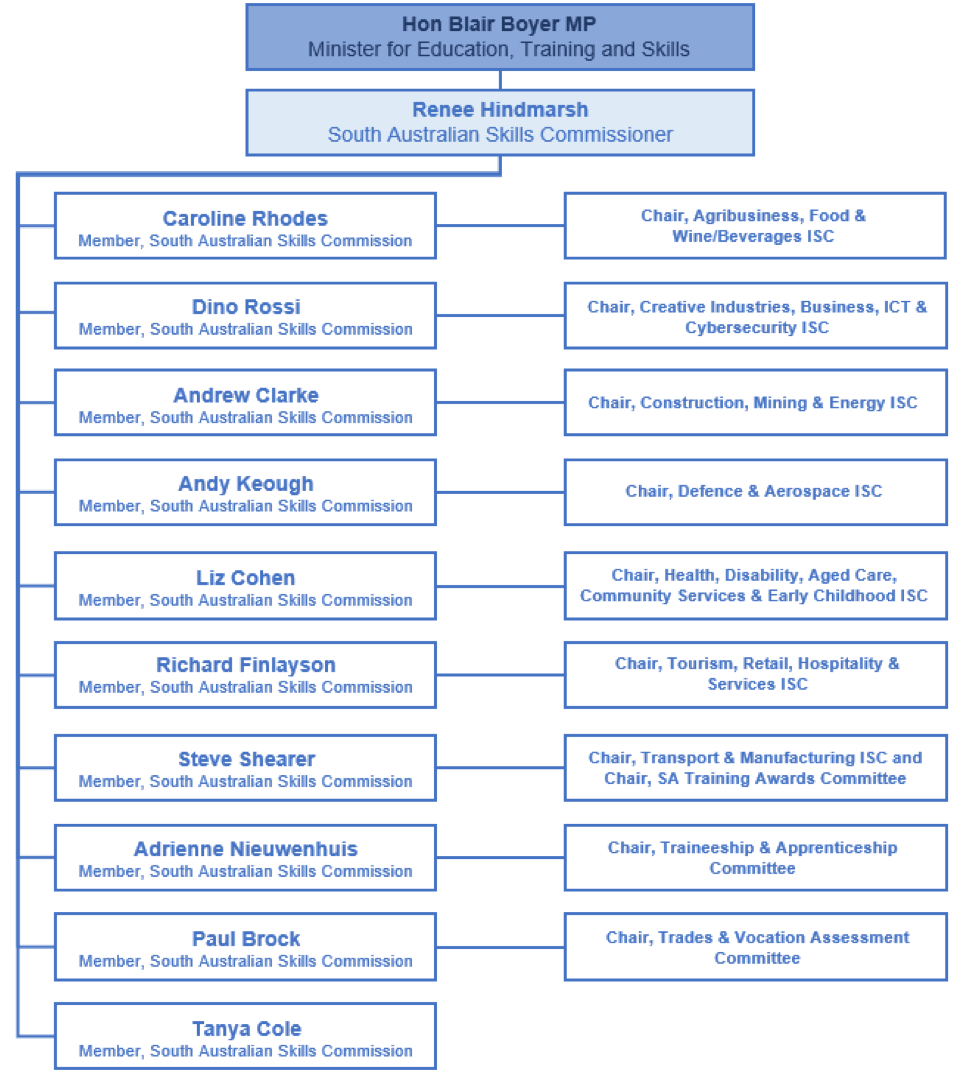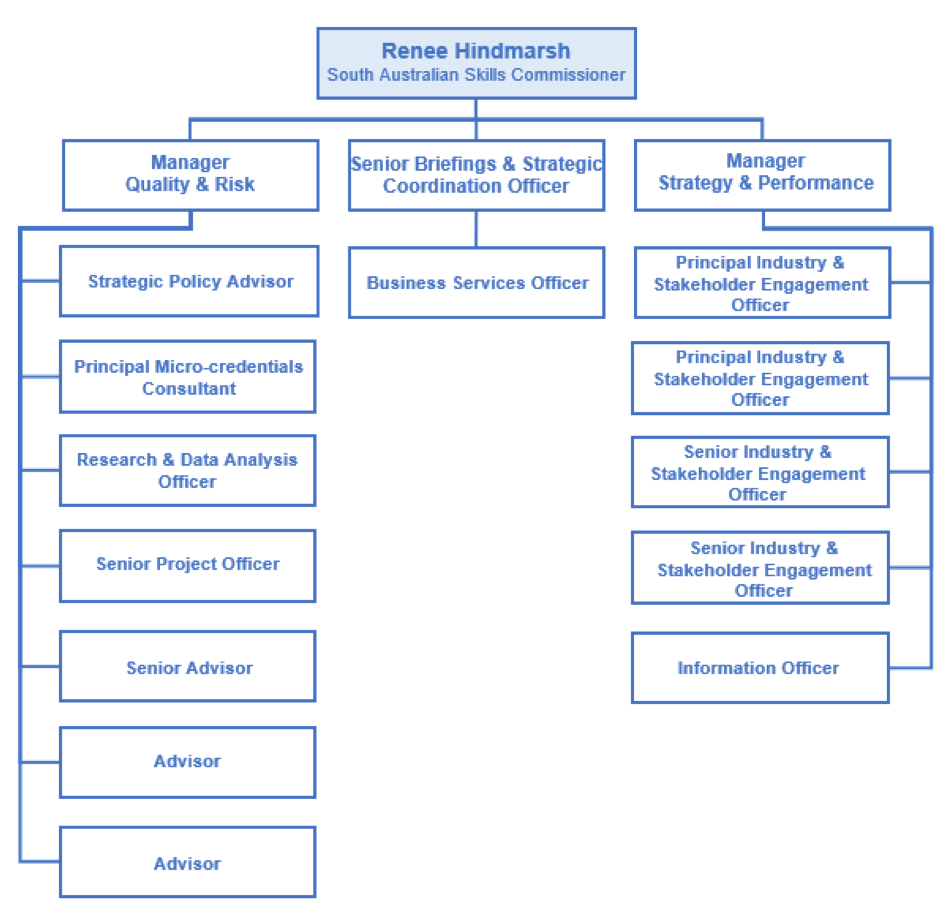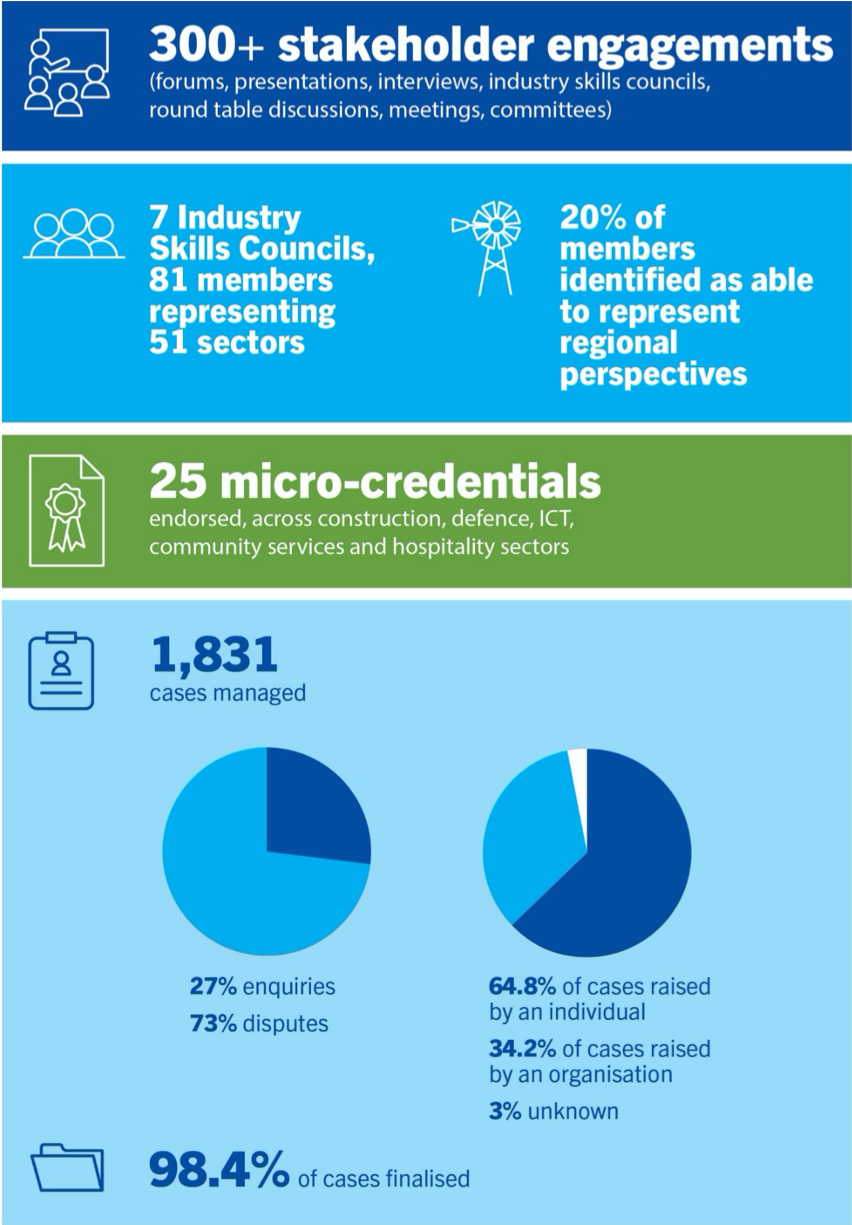I am delighted to present the South Australian Skills Commission’s inaugural annual report. The issue of skills has been front and centre of the national and state agendas and the Commission’s establishment and focus on skills and workforce development in South Australia could not have been timelier.
The Commission has embraced its new role, independently monitoring the skills sector, reforming the State’s apprenticeship and traineeship system and strengthening the coordination of industry input into government policy.
Our Commission members provided expert guidance to effectively integrate the activity of the former Office of the Training Advocate and Training and Skills Commission, while fulfilling the functions set out in the revised South Australian Skills Act 2008.
The finalisation of the Commission’s first Strategic Plan (2022-2024) has been a key milestone. The Plan represents many months of research, consultation and collaboration. Having drawn on the collective intelligence of South Australian employers, Industry Skills Councils, government and education sector stakeholders, the Plan sets down a high-level roadmap for the Commission. Aligning with the objectives of the State Government, the plan is flexible enough to adapt to change and respond to opportunities.
A key focus of the Commission is ensuring a connected skills sector and coordinated industry advice into government policy and programs. The seven Industry Skills Councils, each chaired by a member of the Commission, provide robust advice and industry insights. In addition, as Commissioner I participated in approximately 300 stakeholder engagements, inclusive of business, industry associations, registered training organisations, peak bodies, group training organisations, related statutory authorities and regulatory bodies. These meetings have allowed for candid discussions, promotion of the Commission’s role and strengthening of new and existing relationships.
Connectedness also extends to the myriad government stakeholders responsible for skills and training at a state and federal level. The Education and Training Advisory Group was convened by the Commission with representatives from various agencies across State and Commonwealth Government and a focus on creating connections, reducing duplication, identifying opportunities for collaboration and strengthening messaging around skills-related initiatives.
There was significant growth in traineeships and apprenticeships during this period. As regulator of the traineeship and apprenticeship system in South Australia, the preparation and implementation of the South Australian Skills Standards
has been an essential element of reform. The Commission has worked with a wide range of stakeholders to enhance understanding of the new obligations associated with this method of training and how it helps to grow the State’s pipeline of skilled workers. In addition, the Commission has introduced new reporting arrangements with the Department to ensure greater oversight and compliance.
Significant effort has been invested in ensuring robust data to inform government decision making for skills and training, and this work continues with regular input from our Industry Skills Council members and involves engagement with other government entities.
The ongoing impact of COVID-19 on industry intensified the skills shortage in many businesses, and for many it also required them to rapidly upskill and reskill staff. The Commission undertook a range of activities to ensure the skills and training system was responsive to changing needs. This included the Commission’s Micro-credential Pilot Program, a joint initiative with the former Department for Innovation and Skills (now Skills SA) that has endorsed 25 micro-credential training programs that are responsive to local industry needs and fill gaps unable to be met by qualifications within the Australian Qualifications Framework. The Commission has also declared new trades and vocational pathways, including the first higher education apprenticeship pathway, and streamlined the reactivation of archived pathways.
To support learners throughout their training, and - in the case of apprenticeships/ traineeships - employers as well, the Commission offers a free and confidential dispute resolution and advocacy service that supported more than 1,800 cases in our first year of operations. The service provided the Commission with real-time indicators of the health of the skills sector and in monitoring the implementation of the South Australian Skills Standards, with feedback guiding amendments and allowing for early identification of systemic issues within sectors and across the system.
The South Australian Training Awards were an opportunity to recognise the outstanding achievement of individuals and organisations within the vocational education and training sector, the calibre of finalists a testament to the commitment and quality of our State’s training system.
With a clear strategic direction for the year to come, the Commission is well placed to progress strategic plan projects and deliver real outcomes including strengthening the apprenticeship and traineeship experience, improving supervisor training and increasing completion rates.
I am proud of what has been achieved since the creation of the Commission and I acknowledge the significant contributions of Commission members, Industry Skills Council members (previous and current) and the team within the Office of the South Australian Skills Commission. I’d also like to thank Minister Blair Boyer MP and his team for their support, and his Ministerial predecessor David Pisoni MP and staff.
Renee Hindmarsh
Skills Commissioner
South Australian Skills Commission


